19.4 million euro zone members can’t find work—and it’s only going to get worse
Euro zone unemployment continues to break records. Some 95,000 euro zone workers lost their jobs in April, bringing the total to 19.4 million—an unprecedented unemployment rate of 12.2%, up from 12.1% in March. Here’s a look at the trend:

Euro zone unemployment continues to break records. Some 95,000 euro zone workers lost their jobs in April, bringing the total to 19.4 million—an unprecedented unemployment rate of 12.2%, up from 12.1% in March. Here’s a look at the trend:
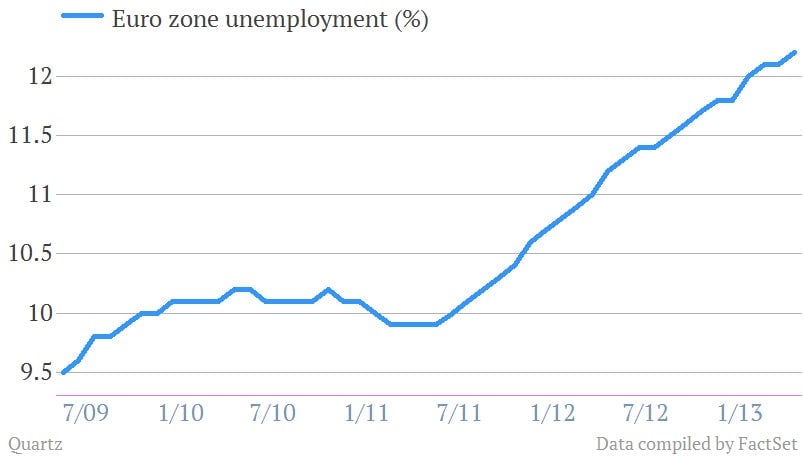
And here’s the country-by-country breakdown in Eurostat’s typically cryptic format (pdf):
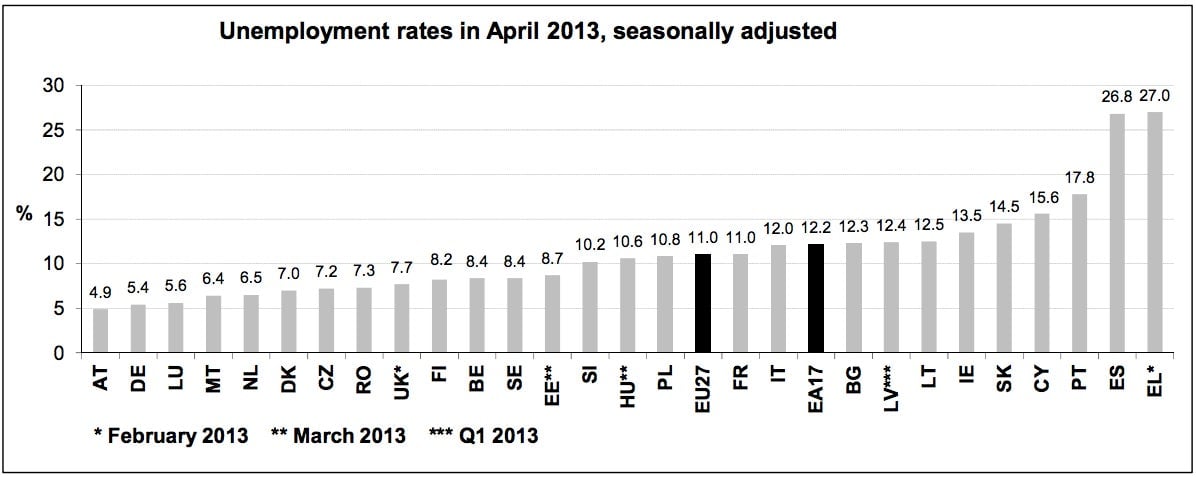
Once again, the euro zone’s young are bearing the brunt of austerity. An additional 188,000 young people went on the dole in April, bumping the youth unemployment rate up to 24.4%, up from 24.0% in March (pdf).
What’s worse, the unemployment crisis is headed downhill. Carsten Brzeski, an economist with ING, told Reuters that the euro zone typically needs 1.5% GDP growth to generate new jobs. The OECD projects 0.6% growth. The IMF, meanwhile, projects a 0.3% contraction.
Spain’s unemployment rate rose slightly to 26.8% in April, while Greece remained about the same, at 27%. Germany, meanwhile, posted a 5.4% unemployment rate, the lowest in the entire European Union, aside from Austria (4.9%). There are cities in Spain where nearly 40% of the working population are jobless. Meanwhile, four cities in Germany have unemployment rates below 3% (pdf):
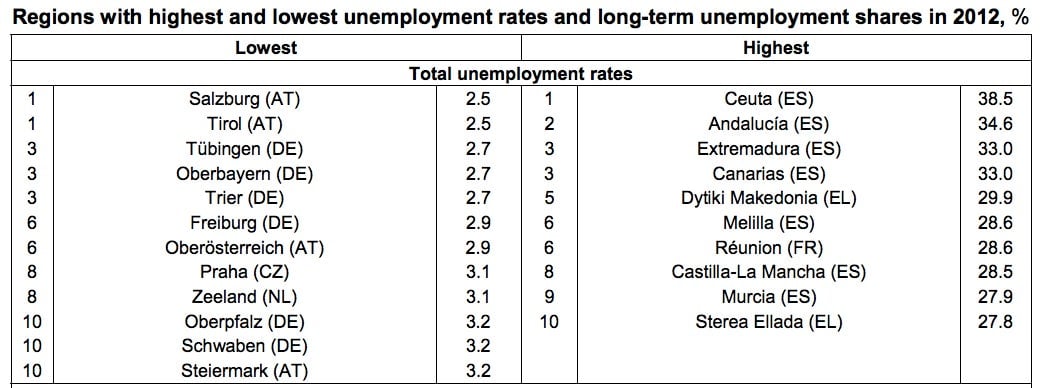
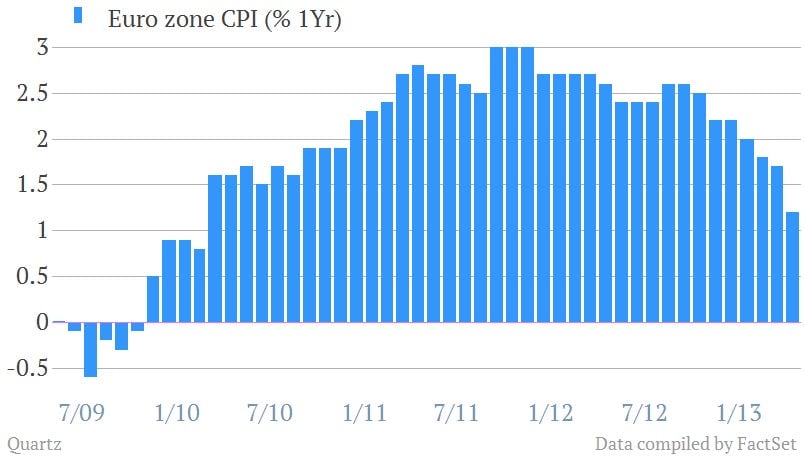
The flash estimate of euro area inflation was 1.4% in May (pdf), up slightly from 1.2% in April. Spending on food, which rose to 3.3% in May from 2.9% in April, was largely responsible.
Some analysts are hoping the ECB will join Ben Bernanke and Haruhiko Kuroda in the “unconventional monetary policy” club when it meets on June 6, since inflation doesn’t appear to be picking up. But the ECB has been dragging its feet, so don’t hold your breath.
One promising sign for the region: data from earlier this month show German wages are rising much faster than in the rest of the euro zone —a crucial step to addressing the region’s economic imbalances, as we recently explained here. Here’s a look at that, via Bruegel:
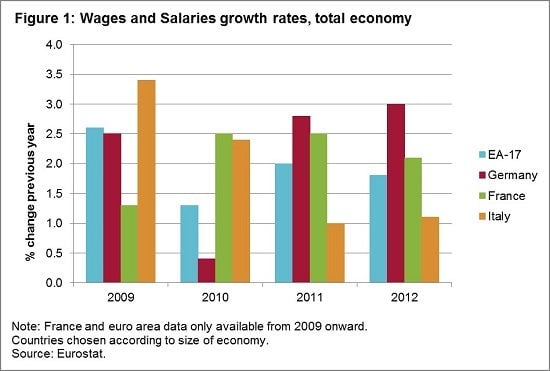
Still, rising wages only help if Germans start spending them. And that may not be happening. Retail sales announced today show that Germans spent 0.4% less in April than they did in March:

That said, retail sales are a notoriously erratic metric, and consumer sentiment remains strong, based on data out last week. It’s tough to draw solid conclusions, but at least this is clear: the euro zone economy will need a lot more German shopping to really turn things around.